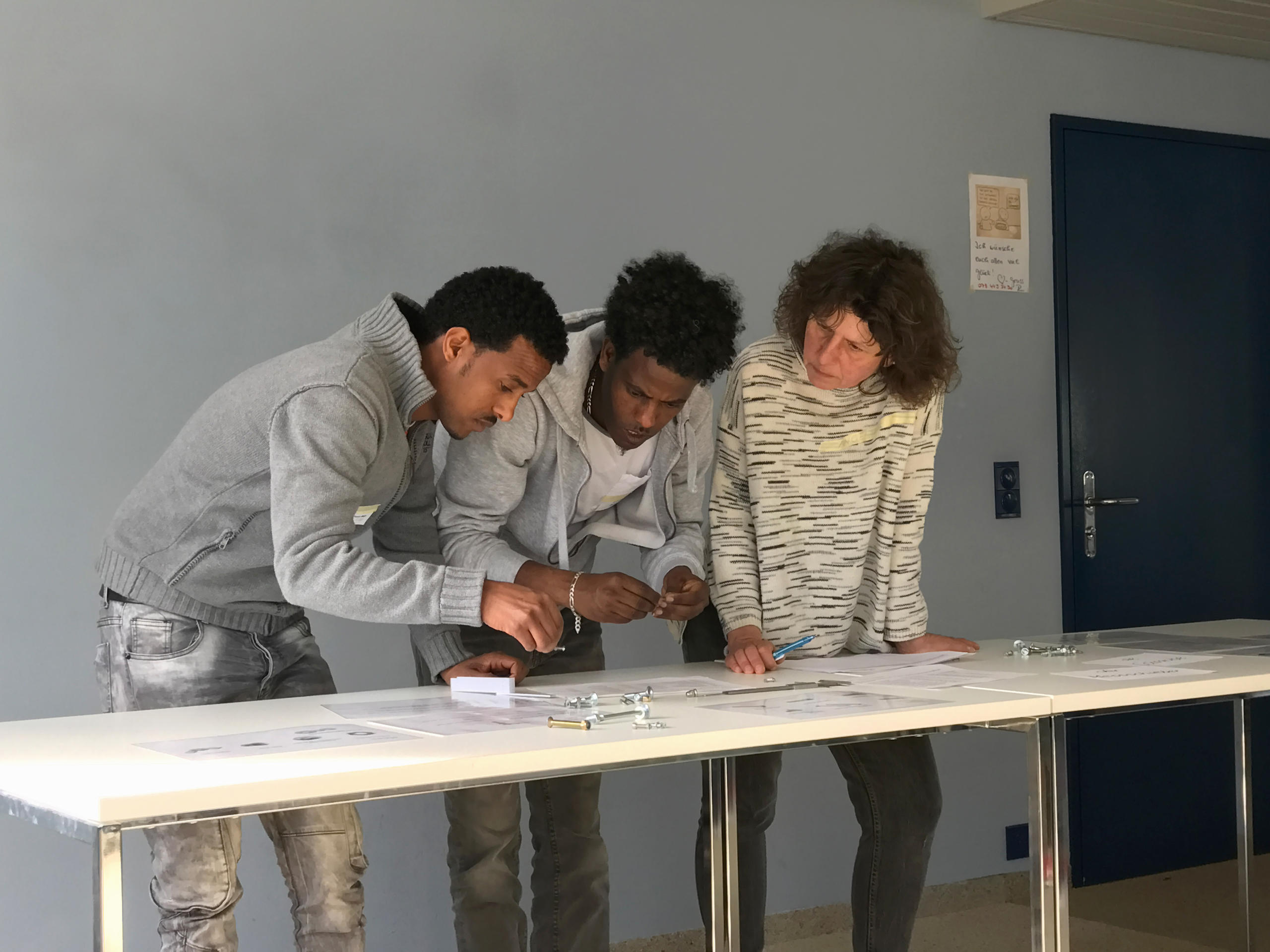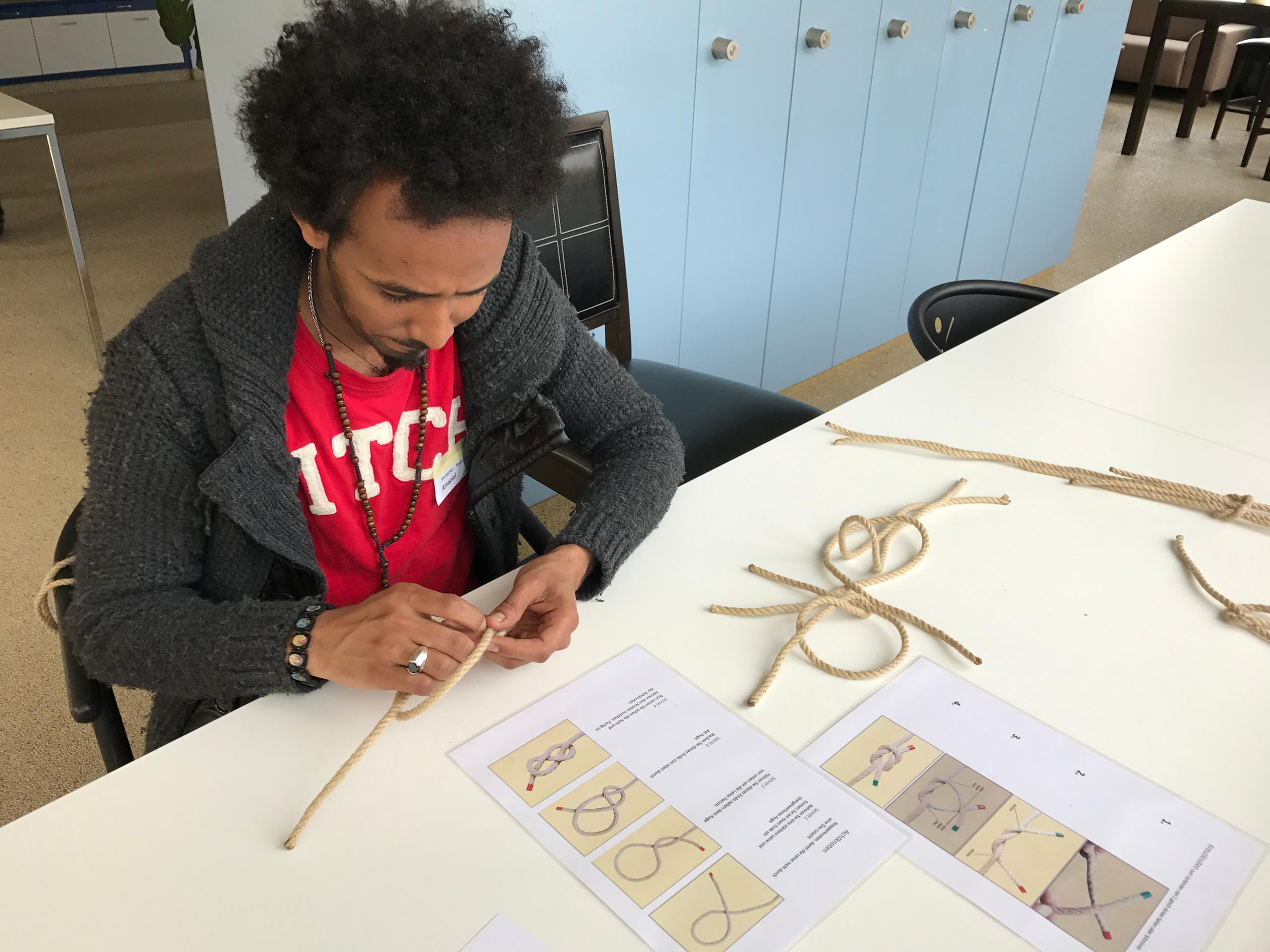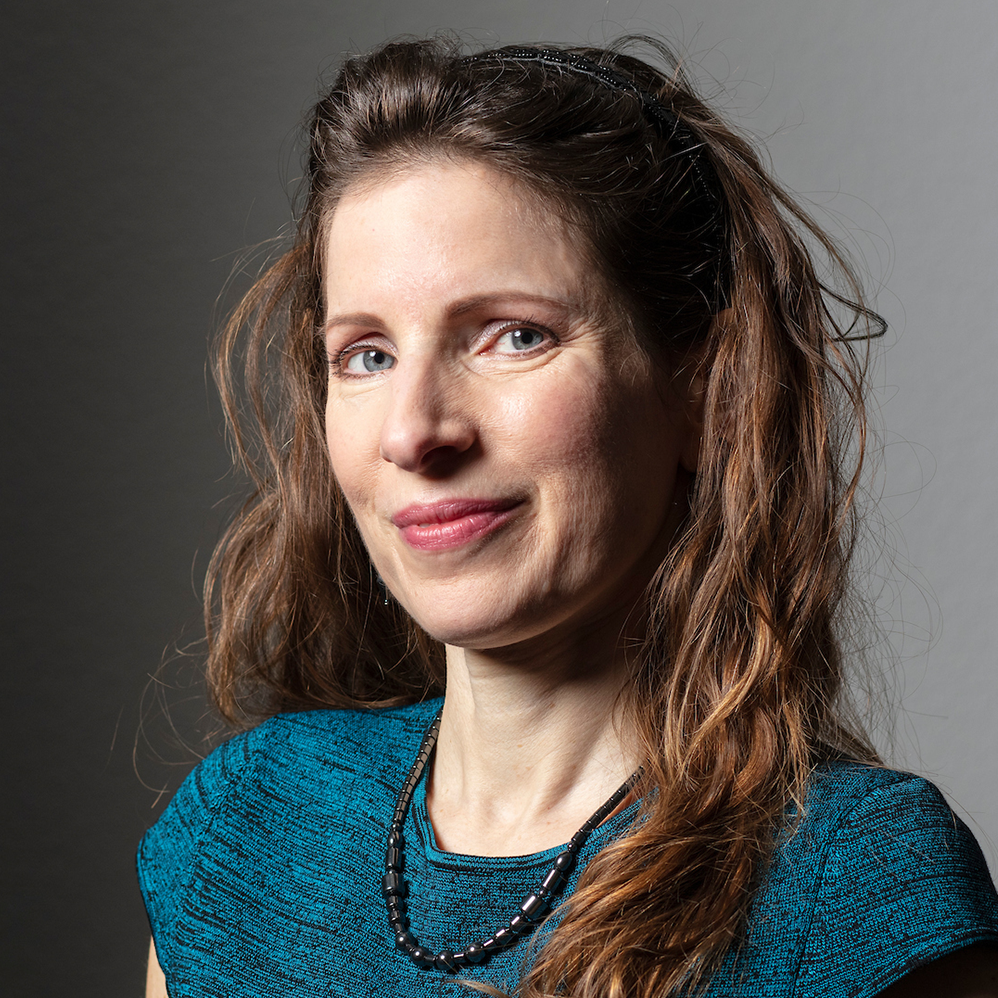More refugees should work

Education and work are key to the integration of migrants, finds Swiss Justice Minister Simonetta Sommaruga. Speaking at the third annual National Integration Conference in Bern on Monday, she addressed 250 politicians, economists and social workers.
Delegates discussed investing more money in educating newly arrived children, youths and young adults, with a particular focus on job market integration. Increasing social contact through volunteer-led community projects was another suggestion.
The cantons say they need more federal funding for this work. Currently, the federal government gives cantons a one-time sum of CHF6,000 ($6,157) per asylum seeker. The cantons have asked the government to triple that to CHF18,000.
Sommaruga sees potential for improved integration as well as its advantages: “If you have a job, you don’t need welfare.” By the end of this year, the justice and finance ministries, along with three cantonal government conferences, want to define a more concrete plan and budget while determining how to better utilize the professional potential of refugees.
Bern example
In canton Bern, aid groups such as Red Cross and Caritas send asylum seekers to German and integration courses like the one offered by FörderschmiedeExternal link, a private language and business school. The canton covers the tuition. The latest project involves a series of integration workshops.

More
Learning the ropes
“We run these workshops to see how handy people are, and whether they work well in a team,” explains Förderschmiede director Michael Lippuner. During the workshops, teachers fill out report cards. How well does the participant understand verbal and written instructions? Does he take initiative and help others? How friendly and hard-working is she?
“The idea is to help them find work where they can make the most of their experience and skills,” Lippuner says. He estimates that of the 400 asylum seekers studying at his institute, at least 5% would be ready to start working for local companies.
Eager to work
Syrian Albkak Belai Ammar appears to be at the top of his class, showing his classmates how to do some of the tasks – like filling out a packing slip. He speaks remarkably good German after just eight months, and he’s also trying to learn the Bernese dialect.
“I love this kind of work. It’s what I used to do back home, and I want to do it here, too. But first I should finish the next German levels, B-1 and B-2, and I need to do an apprenticeship,” Ammar explains eagerly. His life here started when aid workers at a refugee camp in Lebanon arranged for his family to come to Switzerland to get medical care for his brother, who has a heart condition.
Most of the school’s German and integration students are from Eritrea, Dina Elsae included. She came to Switzerland two years ago – via a difficult journey through Sudan, Libya and Italy.
“When my German is better I’ll look for a job, possibly in a hotel or a shop,” she says, adding that back in Eritrea, she worked at a hotel.
In the school’s next project phase, the goal is to evaluate the participants more closely and match them to professional fields.
“They’re not just refugees, but people who have potential for our national economy,” says Lippuner, pointing out that both sides would benefit from faster and more targeted integration efforts.

In compliance with the JTI standards
More: SWI swissinfo.ch certified by the Journalism Trust Initiative

You can find an overview of ongoing debates with our journalists here. Please join us!
If you want to start a conversation about a topic raised in this article or want to report factual errors, email us at english@swissinfo.ch.